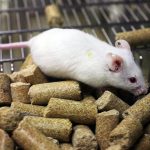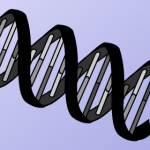News

Hormones In past years, researchers have connected three hormones to both obesity and eating disorders leptin, ghrelin, and the endocannabinoids. Leptin decreases food intake; ghrelin and the endocannabinoids increase a person’s food intake. Obesity Obese people have been found to have an abnormally high level of the hormone leptin in their bloodstream. People with anorexia …
Read More

Scientists have been getting positive results from testing a new drug on 3 different species of monkeys which destroys the blood supply to fatty tissue, resulting in rapid weight loss. The obese monkeys that received the drug were observed to lose an average of 11 percent of their total body weight in just under one …
Read More

Italian researchers have determined that there is an association between illegal drug use, and abnormal weight in teenagers. More than 33,000 Italian high school students between the ages of 15 to 19 were surveyed in this research study which is published in the online journal PLoS one. The researchers established that young people who are …
Read More

Researchers at the Hotchkiss Brain Institute at the University of Calgary, Canada have uncovered a link between stress and the way the brain interprets its environment in order to regulate food intake. In a three year study using rats, researchers noticed that brain neurotransmitters that affect appetite function differently when the brain is exposed to …
Read More

Congress has agreed upon a number of rules regarding the nutritional content of school lunches in the US. The Agriculture Department had been asking Congress to update the rules by limiting the number of servings of French fries and adding more tomato paste to pizza. This was in an effort to conform to recommendations that …
Read More

A US nationwide poll done by the C.S. Mott Children’s Hospital National Poll on Children’s Health examined children were exposed to school based obesity prevention programs and found that nearly 30 percent of parents reported behaviors that are linked with eating disorders. David Rosen, M.D., M.P.H., Clinical Professor of Pediatrics, Internal Medicine and Psychiatry for …
Read More

Research recently published in the journal Biology Letters by Rutgers evolutionary anthropologist Erin Vogel, explores the survival of endangered Indonesian orangutans during periods of food scarcity, and the implications for humans who are coping with eating disorders and obesity. It is believed that scientists may be better able to understand obesity and eating disorders in …
Read More

A research paper recently published in the journal Nature has identified potential therapeutic targets within the brain circuits of mice that may be helpful for the development of eating disorder treatments. Scientists have discovered new information about the messaging pathways between the brain and the body in mice. This includes a brain circuit that operates …
Read More

For the first time, scientists have discovered a possible biological reason for the eating disorders during puberty. A form of estrogen called estradiol may be the cause. The groundbreaking pilot study led by Michigan State University found that influence of one’s genes on eating disorder symptoms was much greater in pubertal girls with higher levels …
Read More

Researchers have determined that for some children, weight problems may be set off by 2 genetic variations that produce a genetic predisposition to common childhood obesity. Although lack of exercise and poor food choices may contribute to the current childhood obesity problem in America, a genetic factor may also help explain why some kids have …
Read More
 Eating Disorder Self Test. Take the EAT-26 self test to see if you might have eating disorder symptoms that might require professional evaluation. All answers are confidential.
Eating Disorder Self Test. Take the EAT-26 self test to see if you might have eating disorder symptoms that might require professional evaluation. All answers are confidential.
Find a Treatment Facility Near You
Click on a state below to find eating disorder treatment options that could be right for you.










 Eating Disorder Self Test. Take the EAT-26 self test to see if you might have eating disorder symptoms that might require professional evaluation. All answers are confidential.
Eating Disorder Self Test. Take the EAT-26 self test to see if you might have eating disorder symptoms that might require professional evaluation. All answers are confidential.